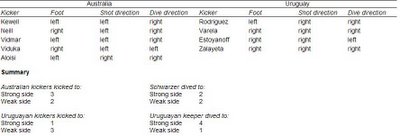
In a farce the recalls the heavenly tabloid headlines damning Sydney Mayor Clover Moore’s rejection of Christmas decorations in the name of multiculturalism, The Drudge Report has broken a story that is sure to re-heat the tired old debate about bounds of church and state.
Apparently, some time in the 1990s the US Capitol’s Christmas Tree was renamed the Holiday Tree (here). It remains a whopping great big tree, with 10k lights, and 5k ornaments (it would be interesting to know if manger type ornaments and stars have been eschewed), so the name change has probably not disguised the obvious Christian reference.
I suppose this could be seen as a tipping of the institutional hat to the doctrine of the separation of church and state. I rather see it as a deliberate rubbing of Christian faces in the dirt. Ms Moore was too strident and was forced to recant. The name-changers are able to spit in our faces, because they only spit little.
Ms Moore responded by announcing a great big Christmas for 2006 – after discovering that the multicultural approach cost her votes. However, in Australia, the change is easy as we do not have a doctrinal separation of church and state to worry about.
The US does, though it would probably not be recognized by the founding fathers. To begin with, it’s a fair bet that by freedom of religion, they really meant freedom to practice Christianity as you see fit, and by separation they simply meant that the state would not tell you where to be and what to do on Sunday.
The founders were puritans and Quakers after all (though some say a few were deists); and were familiar with both oppressing and being oppressed – the puritans became expert at it under Cromwell. The puritans also experimented with oppression of non-Congregationalists in the early colonies, with unhappy results. Toleration of Christian variation was a necessary condition for the unification of the colonies (Quaker Philli was not about to accept mandated Congregationalism). Put simply, the reason it’s the first amendment is that it was a first order concern of the heavyweight god-botherers that made up the bulk of early American colonists.
It’s unlikely that religious traditions, such as putting up a Christmas tree, or opening Congress with a prayer, or maintaining congressional chaplains, would have been tolerated so long if their elimination was the object of the founding law.
The first amendment reads, "Congress shall make no law respecting an establishment of religion, or prohibiting the free exercise thereof..."; does this mean that congress shouldn’t have a Christmas tree (or shouldn’t call their tree a Christmas tree?). Jefferson, who drafted the constitution, and is at times cited as a deist (as though this proves the separation means not Christmas Trees), was also the origin of the separation of church and state moniker (pithy isn’t it?). He coined the phrase in a letter aimed at reassuring Baptists that Congregationalism was not about to be mandated; he wrote:
I contemplate with solemn reverence that act of the whole American people which declared that their legislature should "make no law respecting an establishment of religion, or prohibiting the free exercise thereof," thus building a wall of separation between Church and State.
So the question is, does erecting and naming a Christmas tree (or allowing a prayer to be said in School, or invoking the ten commandments via sculpture) constitute a law respecting the establishment of a religion, or prohibit the free exercise of a religion? As far as I can see, the only religion truly restricted is that of fastidious enforced-secularism.









